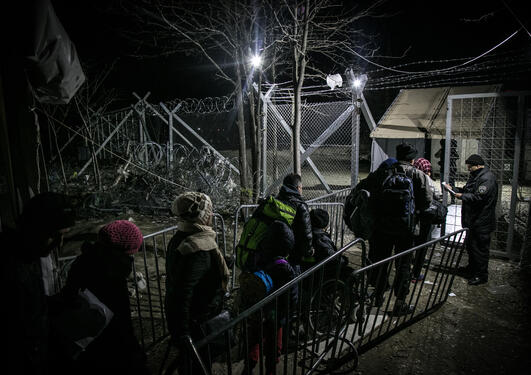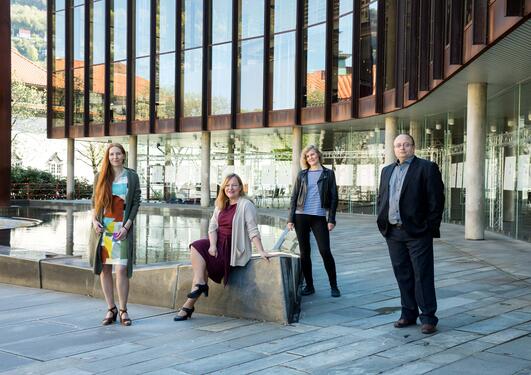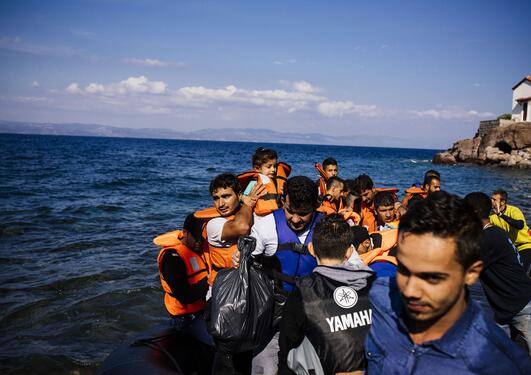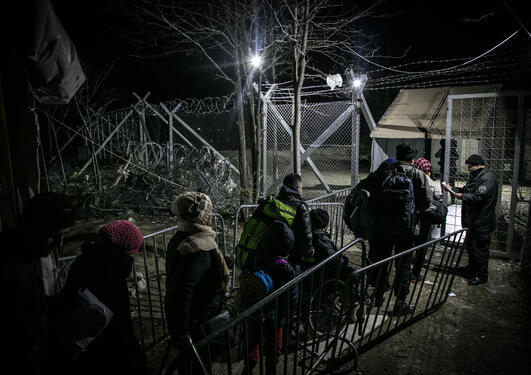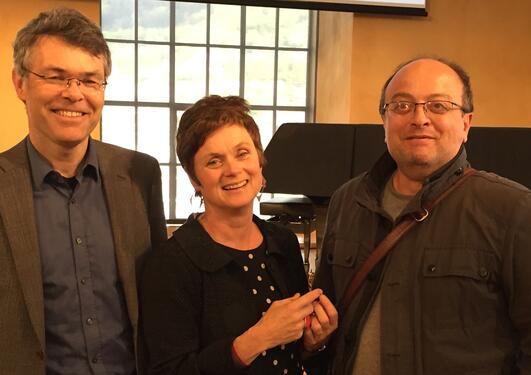Bringing science to Global Refugee Forum
The University of Bergen political scientist Hakan G. Sicakkan has been named as one of the members in the UN Global Academic Network of migration experts.

Main content
In December 2019, Professor Hakan G. Sicakkan participated in a first gathering in Geneva for the UN High Commissioner of Refugees (UNHCR) Global Academic Network. The gathering took place as part of the UN's Global Refugee Forum and coincided with the first year anniversary of the two UN Global Compacts on Refugees and Migration.
Making pledges at the UN
Whilst visiting Geneva, Professor Sicakkan presented two pledges to the UN community. One on the University of Bergen's research efforts in PROTECT for “Identifying the Best Institutional Architectures in Governance of the Right to International Protection in Europe and Their Transferability to Other Regions.” The other on behalf of the PROTECT project, a migration research assess “the Effects of Political, Legal, Governance and Attitudinal Aspects of Protection Capacity on Implementation of the Global Refugee Compact.” PROTECT is supported through the EU's Horizon 2020 programme.
“The pledges are first that the University of Bergen will provide research on refugee protection capacity and global governance of refugee protection through PROTECT, and second that the PROTECT consortium will evaluate the implementation of the Global Compact on Refugees,” says Sicakkan.
Sicakkan was one of the speakers, both in the network meeting and the general assembly at the forum.
“We received a lot of attention in Geneva. Not the least due to PROTECT being the only international project focussing on the Global Refugee Compact to have been funded,” says the political scientists, who was also happy with new contacts made during the two-day event, “my goal to increase the project's and the University of Bergen's international visibility where met, as the forum could result in us getting a broader international network around PROTECT.”
Linking academia and decision-makers
The main aim of the Global Academic Network is to link academia, policy-makers and practitioners in the field of forced displacement and statelessness.
“The network was part of the UN Global Compact on Refugees (GCR), which was passed in December 2018, and one year later the UN gathered 22 researchers from around the world for the first network meeting,” says Sicakkan.
The GCR Global Academic Network is one of the proposed specific arrangements for burden and responsibility sharing.
Three main tasks for expert network
According to the University of Bergen researcher, the Global Academic Network will have three main tasks.
“First, we will work to facilitate training and scholarships opportunities to support the objectives of the Global Compact on Refugees. Second, help junior academics and researchers from areas with a lack of existing networks to engage more in global networks and discussions. Third, we aim to broaden the geographical and thematic scope of disciplines and academics working in the field of migration research,” explains Sicakkan.
Part of university's long-term strategy
“We were delighted that Professor Sicakkan was invited directly by the UN to contribute with his scientific knowledge in migration and refugee studies. This goes directly into the increasing efforts in science advice performed by University of Bergen researchers over the past few years,” says Professor of Anthropology and Scientific Director Edvard Hviding of SDG Bergen Science Advice, which spearheads the university's work on science advice and in science diplomacy.
“Not the least we look forward to how results from Sicakkan and the PROTECT consortium can be useful to provide scientific advice on the 2030 Agenda, which is now in its implementation phase in all UN member states,” says Hviding, who sees this as adding to the University of Bergen's portfolio of scientific impact on decision-making processes in relation to the Sustainable Development Goals (SDGs).
- · The PROTECT Consortium officially launches at an event in Brussels on 9-10 March 2020.
